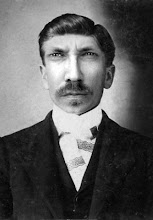
LiP Magazine: Are you a fan of slasher films?
Daphne Gottlieb: I admire them, I like them. Like pornos, they’re about bodily fluids, in this case blood and guts—things we normally don’t get to talk about. At their center, slasher films represent all the things we have to suppress to function as a society—incest, mental illness, deformity, death, vomit, blood, feces. They socially mimic what our collective unconscious is doing. In that way they’re very cathartic. And they’re ritualistic—there’s a formula to them to the point where we can satirize them. It’s the same thing in porn—because we understand the formula, we feel like we have control over what’s happening.
But these are essentially conservative forms – the world is always put back in order at the end.
LiP: Do you see them as misogynist or having elements of misogyny?
DG: To see them as misogynist you have to think fairly literally. Carol Clover’s book Men Women and Chainsaws reminds us not to think too literally about gender in horror films, since a lot of times the killer is really coded female and the victim is coded male.
Then you switch from identifying with the killer to the victim in the course of the film—I can’t think of any other forms where that happens.
At the beginning you’re forced to identify with the killer, you have the zombie cam coming up behind the girl, you’re forced to identify with the bad guy. People yell, “Watch out!” or “Don’t go in there!” but it’s in sort of a mocking way. Then toward the end you switch and start identifying with the victim, like at the end of Halloween when Jamie Lee Curtis is in the closet.
The slasher film is only as misogynistic as our culture, it’s leveraging things that are already in our culture. For instance the highly sexualized woman is always killed off, because you can’t have a sexually willing, young nubile survive. It shows us where the boundaries of normative, acceptable behavior are.
LiP: Are you a fan of pop culture and camp?
DG: I guess, as much as anyone else. I taught feminist film theory, with everything from film noir to horror. I’m not as much interested in pop culture without camp, though. I don’t have much use for it. I like the distance camp gives us, the wink and nudge, the commentary that’s inherent in the form.
Daphne Gottlieb is the author of Final Girl, a book of poems which explore the issues discussed above. Look for the book here
The rest of the above 2003 interview, originally published in Lip Magazine, can be found here




No comments:
Post a Comment